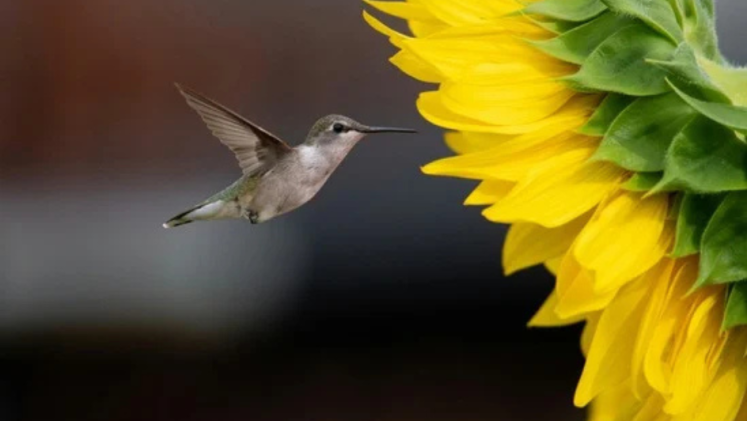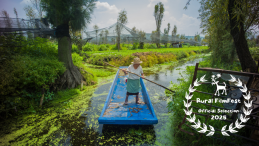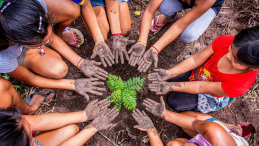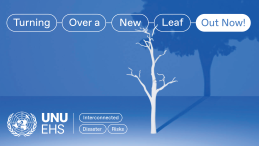Humans have altered around 95 per cent of Earth’s land surface. We have built vast cities, cleared forests and dammed rivers for human profit. These activities are often hailed as triumphs of humanity, enabling remarkable progress and advancements. However, this mindset prioritizes human needs over the health of the planet. We use nature for our convenience and, by doing so, compromise our planet and the lives it sustains.
The latest Interconnected Disaster Risks report urges us to change the way we think about nature altogether. Instead of viewing it as something external ready to be exploited, it asks us to recognize that we belong to and are part of nature. Here is why that shift in mindset is more urgent than ever:
Nature is not just a resource, but our lifeline
For centuries, societies have been taught to see nature as separate from us: a set of raw materials to extract, shape and control. But this thinking ignores that without healthy ecosystems, we cannot survive. We need clean air, fresh water and food, which is all provided by nature. When we destroy forests, dry out wetlands or overfish our oceans, we chip away at the very systems we rely on.
Trying to control nature often backfires
We have long tried to force nature to fit our plans, but these short-term fixes often cause long-term problems. Take Florida’s Kissimmee River, for example. In the 1960s, 160 kilometres of winding river were converted into a 9-metre-deep canal. While this did reduce flooding, it also dried out around 160 square kilometres of wetlands, leading to a 90 per cent decline in water bird populations and a 70 per cent drop in bald eagle numbers. Many other fish, bird and mammal species vanished entirely. Recognizing the extent of this ecological damage, efforts have since been made to reverse some of the harm. Parts of the river have been restored, and habitat was given back to wetland species, providing corridors for panthers and bears to cross the state. Healthy wetlands also provide freshwater and help to regulate flooding, which also benefits human communities when facing weather extremes like droughts and floods.
Losing biodiversity means losing our safety net
More than a million plant and animal species are currently at risk of extinction. Populations of amphibians, birds, fish, mammals and reptiles have declined by around 70 per cent since 1970 and an estimated 45 per cent of all known flowering plants are threatened with extinction. This directly affects the stability of the world we live in. Diverse ecosystems are more resilient, and when we remove too many pieces from the puzzle the whole system becomes fragile. Protecting biodiversity means safeguarding the planet and ourselves.
Nature and biodiversity are not the enemy
The idea that nature must be conquered is not universal. In many places, people have long lived in harmony with the rhythms of the environment. In Viet Nam, for example, seasonal floods are welcomed. They provide water and nutrients for fields, wash out salts and toxins from the soils and recharge groundwater. Indigenous communities from Hawaii, Australia and Mexico consider trees, rivers or hummingbirds as members of their families. This sense of kinship helps them to feel like they are part of nature instead of creating division between humans and nature. Learning from these different traditions and views from around the world can help us find ways to work with nature instead of against it.
How we think about nature shapes what we build
It is easy to feel overwhelmed by the scale of environmental damage. But stories of recovery show that change is possible. Conservation efforts in Colombia have brought forest loss to its lowest rate in 23 years, for example. Nature can heal, if we give it the space and support to do so. Behind every dammed river, cleared forest or drained wetland is a choice, and a reflection of how we see our place in the world. By reintegrating natural processes into our lives, we can acknowledge our role within ecosystems, ensuring a balanced, resilient future for the planet as a whole.





